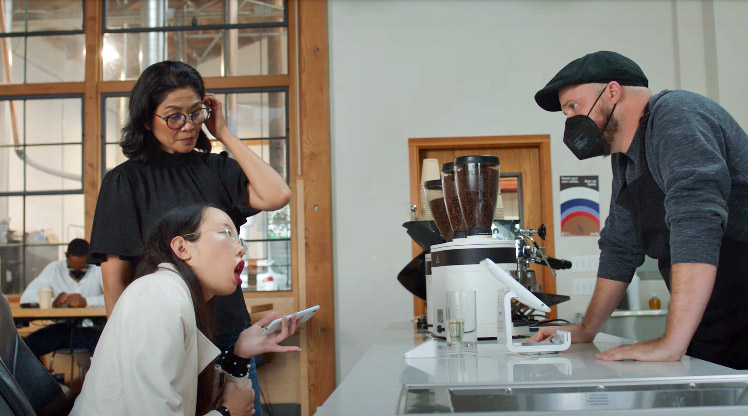Watch: Google unveils new AI app to help people with speech impairments
New Google Project Relate app provides AI-powered speech synthesis for people with speech impairments

Google is seeking volunteers for a new beta app called Project Relate, which aims to provide people with speech impairments with a voice assistant that can transcribe their speech in real time as well synthesize what they are saying.
The app is part of Project Euphoria, which is a wider endeavor started in 2019 that’s aimed at collecting data to be used for improving Google's AI algorithms when it comes to handling speech from people who “have difficulty being understood by others,” such as those affected by neurological conditions.
- Google Pixel 6 review: our verdict
- These are the best Android phones you can buy right now
- Plus: Google Pixel 6 fingerprint disaster — it can stop working if your battery dies
As for the Relate app, it has three key features. The Listen feature will transcribe a user’s speech in real time, allowing them to copy and paste into other apps or show to other people.
The Repeat feature will restate what the user is saying in a “clear synthesized voice,” which Google hopes will aid face-to-face conversations and help when people with speech impairments want to speak a command to a smart home device. The Assistant feature basically allows users to speak to the Google Assistant from directly within the Relate app.
“As an early tester of Project Relate, you will be asked to record a set of phrases. The app will use these phrases to automatically learn how to better understand your unique speech patterns,” Julie Cattiau, product manager at Google’s AI division explained.
Google worked closely with people with speech impairments to develop Relate, and Aubrie Lee, a brand manager at Google, whose speech is affected by muscular dystrophy, noted: “I’m used to the look on people’s faces when they can’t understand what I’ve said. Project Relate can make the difference between a look of confusion and a friendly laugh of recognition.”
If you would benefit from Project Relate and live in the U.S. Australia, New Zealand or Canada, then you can record your interest in testing Relate. Once you have access to the app, you’ll need to spend between 30 to 90 minutes reading 500 phrases. That may sound like a lot of effort, but that data is the fuel that’ll train the AI behind Relate to recognize your voice. Just bear in mind, you’ll need a smartphone that can run Android OS 8 or later.
Sign up to get the BEST of Tom's Guide direct to your inbox.
Get instant access to breaking news, the hottest reviews, great deals and helpful tips.
And on a macro level, this type of work could also help improve the voice recognition of the Google Assistant overall. While it’s one of the best AI-powered virtual assistants around, Google Assistant can still struggle to understand certain phrases or pick apart hurriedly barked commands. So Google’s work on its AI algorithms could help improve the Assistant for all, regardless of speech.
Roland Moore-Colyer a Managing Editor at Tom’s Guide with a focus on news, features and opinion articles. He often writes about gaming, phones, laptops and other bits of hardware; he’s also got an interest in cars. When not at his desk Roland can be found wandering around London, often with a look of curiosity on his face.
